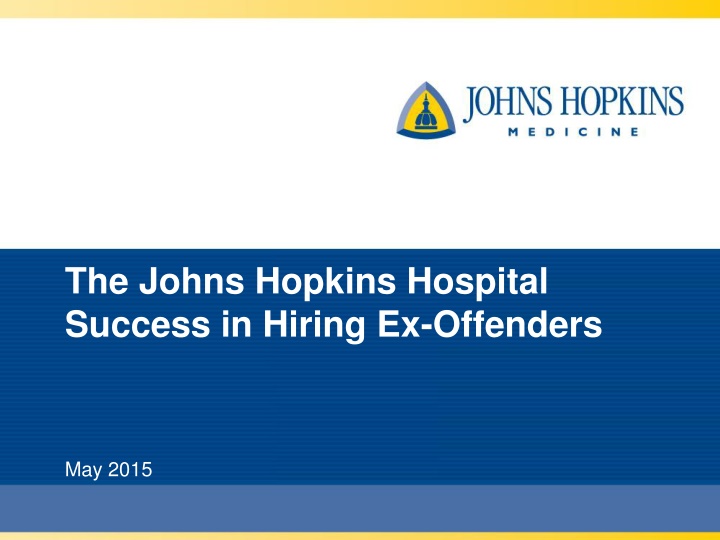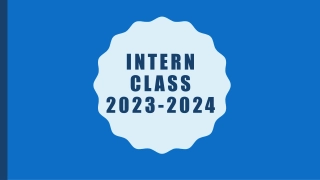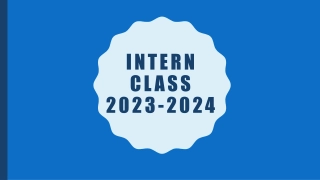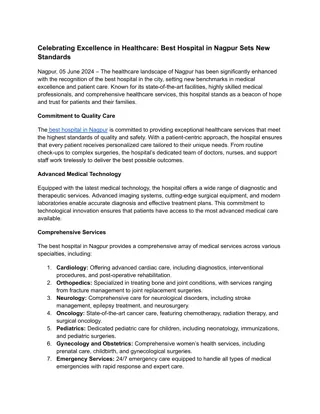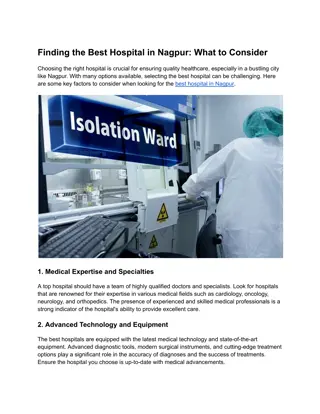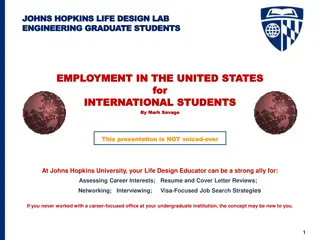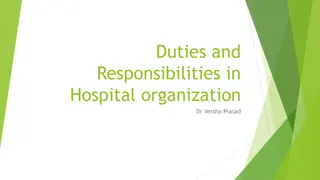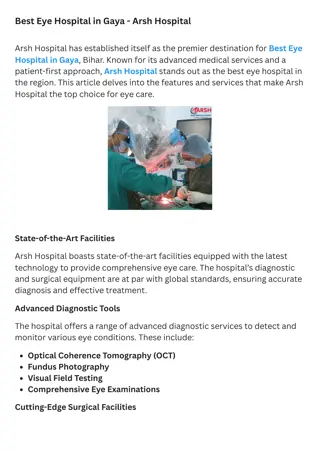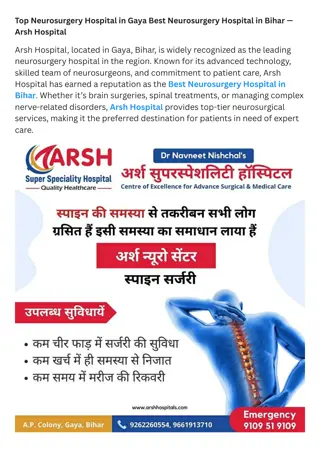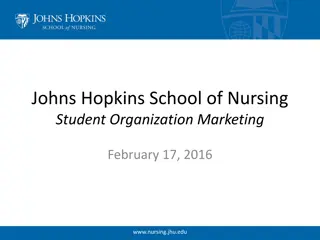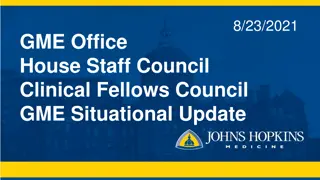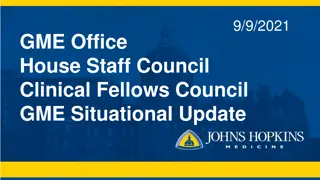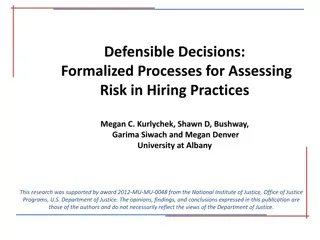Johns Hopkins Hospital's Success in Hiring Ex-Offenders
Amid challenges in an impoverished community, Johns Hopkins Hospital's proactive approach to workforce development includes engaging incumbent workers, inspiring youth to pursue careers in healthcare, and hiring from non-traditional sources such as ex-offenders. This commitment aligns with their mission to uplift the Baltimore community, address high levels of unemployment, and provide opportunities for those with limited work history.
Download Presentation

Please find below an Image/Link to download the presentation.
The content on the website is provided AS IS for your information and personal use only. It may not be sold, licensed, or shared on other websites without obtaining consent from the author.If you encounter any issues during the download, it is possible that the publisher has removed the file from their server.
You are allowed to download the files provided on this website for personal or commercial use, subject to the condition that they are used lawfully. All files are the property of their respective owners.
The content on the website is provided AS IS for your information and personal use only. It may not be sold, licensed, or shared on other websites without obtaining consent from the author.
E N D
Presentation Transcript
The Johns Hopkins Hospital Success in Hiring Ex-Offenders The Johns Hopkins Hospital Success in Hiring Ex-Offenders May 2015
Johns Hopkins Bequest $7M for a university and hospital in Baltimore Largest philanthropic bequest in the country at that time (1867) Explicitly expressed that it should serve the total needs of his beloved Baltimore community
Impoverished Community Maryland $77,166 Baltimore $48,243 East Baltimore $39,113 Median Income Poverty Rate 10.1% 24.0% 31.9% Unemployment 6.8% 10.2% 15.2% Baltimore 32% of adults lack high school diploma
Todays Leadership Perspective We have a philosophy that Johns Hopkins is of the community of Baltimore. We need to do something about creating opportunities. This community has disproportionately high rates of unemployment, dysfunctional families, crime, abandoned homes, etc. It is in our best interest to take constructive steps to introduce the people of East Baltimore into the workforce. Ronald R. Peterson, President The Johns Hopkins Hospital Johns Hopkins Health System
Johns Hopkins Medicine Largest private employer in Maryland 200,000 plus applications per year Mission drives us to go beyond traditional HR processes for workforce development
Three-Pronged Approach to Workforce Development Engage incumbent workers;provide skills to move into jobs with higher wages Excite youth to choose health care as a career; provide development opportunities Hire from non-traditional sources; provide opportunities for those with a limited work history
Consistent with mission and culture Commitment to stay in East Baltimore, an at-risk neighborhood Re-entering offenders with no job are more likely to return to crime Jobs stabilize the community Ex-offenders are great workers
How Do We Do It? Normal application/DDI assessment and interview process, offers are conditional based on background as well as references and occupational health screening If chosen, reviewed by HR Investigator If hired, background file kept in HR manager notified only if needed
The Johns Hopkins Hospital Guidelines for Criminal Background Checks To determine the relevance of an applicant's criminal background, we examine the following: Job and duties Time, nature and number of convictions Circumstances and relationship between convictions Time between conviction and decision to hire Employment before and after to see the extent of rehabilitation Attempts at rehabilitation by the applicant Age at time of conviction Impact of conviction and relevance to security and safety of employees, patients and visitors Whether the applicant disclosed this information
Screening Results FISCAL YEAR 2015 4035 new hires at JHH/JHHS 234 (5.79%) candidates had an adverse background 166 (71%) with were hired 46 (20%) not hired, half not hired for reasons other than background 22 (9%) were still pending at the end of fiscal year
Success Factors - External Programs 1. Have support of your Executive 2. Screen carefully for success 3. Help referrers build pre-hire curriculum to meet your specific needs 4. Interview candidates prior to training program as if you were hiring 5. Use internships as trial employment
Follow-up Studies Anecdotal observation no problematic terminations were ex-offenders Longitudinal study being conducted now by outside research group This report is in the midst of being completed
Our community members with criminal backgrounds have successfully joined our workforce. What can you do to add them to yours?
